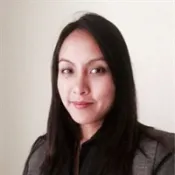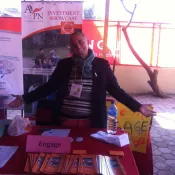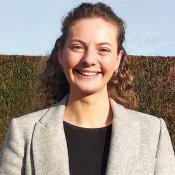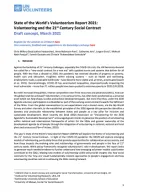State of the World's Volunteerism
Closed
Volunteerism and the 21st Century Social Contract
March 16-May 31
Moderated by Chris Millora, Maggie Carroll
About the discussion group
In this online discussion, we want to hear your views, experiences and questions on "What could be the role of volunteerism in the evolution of a new social contract between people and states that secures rights and dignity for all?"

In reply to (No subject) by Maggie Caroll
Apologies for the gap….
Chris, you write very correctly when you state the following:
“So perhaps every volunteering act is a beginning of something else - for some, it is the start of something more concrete, something more long-term or something more expansive?”
The goal of any organization, formal or informal, mobilizing volunteers should go beyond its stated aim (either if this is meeting immediate needs through relief work, educational support or whatever or if it is more related to advocacy work) and it should always include and educational or better “pedagogical” aspect, that is long term transformative. This is something already discussed above with Alice, so I do not want to repeat myself but I guess this is about a personal leadership challenge that can help you grow as a person and as responsible and committed citizen.
Chris, you write very correctly when you state the following:
“So perhaps every volunteering act is a beginning of something else - for some, it is the start of something more concrete, something more long-term or something more expansive?”
The goal of any organization, formal or informal, mobilizing volunteers should go beyond its stated aim (either if this is meeting immediate needs through relief work, educational support or whatever or if it is more related to advocacy work) and it should always include and educational or better “pedagogical” aspect, that is long term transformative. This is something already discussed above with Alice, so I do not want to repeat myself but I guess this is about a personal leadership challenge that can help you grow as a person and as responsible and committed citizen.
Support
Share

Hello this is a great opportunity and it is so important. To start with, understanding volunteerism as part of the bigger “civic engagement” spectrum is essential.
One of the major features if not the most important feature characterizing volunteering is the solidarity driven action. I mean with this that volunteerism is solidarity (inspired by empathy) into action.
Civic engagement is also about action in a way that there are different types of “action” all surrounding the idea of participation that is the foundation of all what we are right now talking about.
Participating in the community life can takes different forms and shapes and UNV already did a great job at defining the new volunteering spectrum that fully acknowledges multiple forms of action, even and very importantly, also informal ways of doing.
Now when we talk about civic engagement, we can think of a variety of things from the most basic like voting to include others like be part of a discussion group, to be part of a movement and so on.
Volunteering as I said is about action and is duly part of this family of “civic engagement” but perhaps the “action” part of a volunteering effort, whatever it might entails, might require also an additional “action”.
Let me explain: on one side, there is the pure effort aimed at doing something good in the community and society. We all already discussed about its features and we do not need to get into the details here.
I think there is another “action” complementing the “classic” volunteering equation and I mean that the volunteering “effort” should also be strengthened by another type of action: questioning why my volunteering effort is required. Of course, there is a need but this need should not only be addressed by volunteering actions. At the end of the day it is about policy making, isn’t? Volunteering action itself is not enough.
So here the idea of a Volunteering Plus model or Double Action Volunteering: doing something concrete but this should be followed up by also another type of intervention that should go deep to the core of decision making.
This intervention won’t require a volunteer to become an MP or local councilor (well, these options are not bad, aren’t they? if they come from a passion discovered through volunteering ?) but she should be passionate about a cause, ideally becoming an “advocate” even when her volunteering time is over or at minimum she will be remain interested on the issue or problem where she had volunteered.
This approach certainly poses several challenges, starting from lack of time in following up. I think it could be very fair not to demand extra “task” or “burden” to any volunteering also because this 2nd type of action also is complex. Yet each volunteer should understand, before undertaking the usual/traditional volunteering action” that her efforts/gestures, no matter how much effective and impactful, are not the end of the problem in the long run, that even the most successful and inspiring impactful volunteering actions require collaborations, partnerships with decision making process, with the duty holders.
In a way if we keep thinking on this, right holders might be turned into “duty holders” as well.
This could be the process:
1) I feel there is a problem or I realized through a friend or through an event or through an awareness that there is a problem
2) I feel I can do something
3) Here we have different options of participation (joining a party, joining a movement or join a local not for profit doing something very concrete)
4) I opt for the former, doing something concrete
5) During the pre-service capacity building, I do understand the complexities of the issue
6) I start volunteering, working at one end of the problem, immediate relief
7) Then I know that my engagement does not end with “direct” serving but it also requires a constant interest and if possible, again if possible, something more and here the 2nd Action dimension starts. For example
8) I can read more about the issue or I can contact a local councilor or I can talk about the issue with my friends, there hundreds of ways to pick this up and keep focusing on the issue.
9) The bottom line is that I realize the problem does not end with my volunteering, I become aware that I can do something more… even if my commitment with the 1st type of action (directly serving on the ground) ends.
10) It is my duty to do whatever I can to solve this issue ( run for election or simply keep our elected officers or civil service officials accountable and so on)
So this is a proposal, very rough: let’s talk about all forms of participation under the iconic term of “civic engagement” but also let’s start a conversation on making the “usual” action oriented volunteering effort much linked and possibly more conducive to decision making process through personal ownership of the issue.
Well enough for the first posting.. thanks
One of the major features if not the most important feature characterizing volunteering is the solidarity driven action. I mean with this that volunteerism is solidarity (inspired by empathy) into action.
Civic engagement is also about action in a way that there are different types of “action” all surrounding the idea of participation that is the foundation of all what we are right now talking about.
Participating in the community life can takes different forms and shapes and UNV already did a great job at defining the new volunteering spectrum that fully acknowledges multiple forms of action, even and very importantly, also informal ways of doing.
Now when we talk about civic engagement, we can think of a variety of things from the most basic like voting to include others like be part of a discussion group, to be part of a movement and so on.
Volunteering as I said is about action and is duly part of this family of “civic engagement” but perhaps the “action” part of a volunteering effort, whatever it might entails, might require also an additional “action”.
Let me explain: on one side, there is the pure effort aimed at doing something good in the community and society. We all already discussed about its features and we do not need to get into the details here.
I think there is another “action” complementing the “classic” volunteering equation and I mean that the volunteering “effort” should also be strengthened by another type of action: questioning why my volunteering effort is required. Of course, there is a need but this need should not only be addressed by volunteering actions. At the end of the day it is about policy making, isn’t? Volunteering action itself is not enough.
So here the idea of a Volunteering Plus model or Double Action Volunteering: doing something concrete but this should be followed up by also another type of intervention that should go deep to the core of decision making.
This intervention won’t require a volunteer to become an MP or local councilor (well, these options are not bad, aren’t they? if they come from a passion discovered through volunteering ?) but she should be passionate about a cause, ideally becoming an “advocate” even when her volunteering time is over or at minimum she will be remain interested on the issue or problem where she had volunteered.
This approach certainly poses several challenges, starting from lack of time in following up. I think it could be very fair not to demand extra “task” or “burden” to any volunteering also because this 2nd type of action also is complex. Yet each volunteer should understand, before undertaking the usual/traditional volunteering action” that her efforts/gestures, no matter how much effective and impactful, are not the end of the problem in the long run, that even the most successful and inspiring impactful volunteering actions require collaborations, partnerships with decision making process, with the duty holders.
In a way if we keep thinking on this, right holders might be turned into “duty holders” as well.
This could be the process:
1) I feel there is a problem or I realized through a friend or through an event or through an awareness that there is a problem
2) I feel I can do something
3) Here we have different options of participation (joining a party, joining a movement or join a local not for profit doing something very concrete)
4) I opt for the former, doing something concrete
5) During the pre-service capacity building, I do understand the complexities of the issue
6) I start volunteering, working at one end of the problem, immediate relief
7) Then I know that my engagement does not end with “direct” serving but it also requires a constant interest and if possible, again if possible, something more and here the 2nd Action dimension starts. For example
8) I can read more about the issue or I can contact a local councilor or I can talk about the issue with my friends, there hundreds of ways to pick this up and keep focusing on the issue.
9) The bottom line is that I realize the problem does not end with my volunteering, I become aware that I can do something more… even if my commitment with the 1st type of action (directly serving on the ground) ends.
10) It is my duty to do whatever I can to solve this issue ( run for election or simply keep our elected officers or civil service officials accountable and so on)
So this is a proposal, very rough: let’s talk about all forms of participation under the iconic term of “civic engagement” but also let’s start a conversation on making the “usual” action oriented volunteering effort much linked and possibly more conducive to decision making process through personal ownership of the issue.
Well enough for the first posting.. thanks
3
Support
Share

In reply to (No subject) by simone
Thank you so much for sharing these thoughts, Simone! I couldn't agree more!
Concrete actions are amazing, beautiful, and needed, but it is not enough to have a long-term impact. We should understand and tackle social issues by the root causes, and avocate for better protection of human dignity at political level (local, national, regional or international depending the matter).
Sometimes volunteers feel like they are not good enough, not educated enough in politics to enter the debate, and I think it is sad. Of course, research and education are important, but anyone should report to the politicians if any social issue emerges. As Jacob Ellis sayed Yesterday: There are so many creative and colourful people out there ! If this creativity was used in the service of advocacy, it would definitely have a sustainable positive impact on our society.
I have been part of this group of young people who undertake concrete actions only. I was trying to change the social norms by a solidary behaviour with the vulnerable. Today, I am proud to work as Advocacy Intern with World Youth Alliance, entering the political debate to defend human dignity worldwide.
As Ilcheong Yi said Yesterday : “We should go beyond meeting basic needs, we should expand the freedom of people. Aim high. Show compassion. Go beyond.”
Thank you !
Concrete actions are amazing, beautiful, and needed, but it is not enough to have a long-term impact. We should understand and tackle social issues by the root causes, and avocate for better protection of human dignity at political level (local, national, regional or international depending the matter).
Sometimes volunteers feel like they are not good enough, not educated enough in politics to enter the debate, and I think it is sad. Of course, research and education are important, but anyone should report to the politicians if any social issue emerges. As Jacob Ellis sayed Yesterday: There are so many creative and colourful people out there ! If this creativity was used in the service of advocacy, it would definitely have a sustainable positive impact on our society.
I have been part of this group of young people who undertake concrete actions only. I was trying to change the social norms by a solidary behaviour with the vulnerable. Today, I am proud to work as Advocacy Intern with World Youth Alliance, entering the political debate to defend human dignity worldwide.
As Ilcheong Yi said Yesterday : “We should go beyond meeting basic needs, we should expand the freedom of people. Aim high. Show compassion. Go beyond.”
Thank you !
1
Support
Share

In reply to (No subject) by Marie-Laure
What an inspiring message, Marie! Thank you! I would love to know more about your work at WYA. Is there a specific aspect of human development that you are particularly interested in?
I agree with you that longer term and more systemic change is needed, but I also think that concrete actions - including those that you describe here - are extremely important to our journey towards social transformation! I believe that many people do what they can, with the time and resources that they have to incite small actions/changes within their sphere of influence. A lot of these could change as we gain more experience, meet more people, etc. but every action is important. Part of what the Sustainable Development Goals are doing is providing us with a common language/framework to strive for - but it recognises that we all have a role to play in reaching them!
I agree with you that longer term and more systemic change is needed, but I also think that concrete actions - including those that you describe here - are extremely important to our journey towards social transformation! I believe that many people do what they can, with the time and resources that they have to incite small actions/changes within their sphere of influence. A lot of these could change as we gain more experience, meet more people, etc. but every action is important. Part of what the Sustainable Development Goals are doing is providing us with a common language/framework to strive for - but it recognises that we all have a role to play in reaching them!
Support
Share

In reply to (No subject) by Marie-Laure

In reply to (No subject) by simone
Hi Simone! What a great way to kick-off our conversation here! You have explained so well the complexity and power of volunteering as a social practice - it could take many forms but ultimately, apart from filling the service gaps, many volunteers desire to 'change things for the better' in the longer-term and in a wider sense. When I was studying the experiences of youth volunteers in the Philippines, I was struck that many of their journeys toward service and advocacy started with a volunteering act - may that be joining a mission or conducting a community health class. Similar to what you are saying here, Simone, I found that such experiences became an impetus for them to think about their roles in the society, what issues are important (to them and for others) and what they can do to contribute to solutions! So perhaps every volunteering act is a beginning of something else - for some, it is the start of something more concrete, something more long-term or something more expansive?
Another aspect that I found insightful in your contribution is the role of collaboration. Indeed, working together towards solving social problems and contributing towards the SDGs is an important aspect of what we would like to find out in this year's SWVR. The discussions during our first consultation was a good start to see some real concrete examples of how these collaboration look like. You are right that perhaps the question of collaboration goes beyond working together and should also include aspects like ownership (as you pointed out above) and voice; and values like trust. Maybe, it is in looking at these granural, processual aspects of collaboration where we see what sort of models could lead to what kind of development outcomes. What do you think?
Another aspect that I found insightful in your contribution is the role of collaboration. Indeed, working together towards solving social problems and contributing towards the SDGs is an important aspect of what we would like to find out in this year's SWVR. The discussions during our first consultation was a good start to see some real concrete examples of how these collaboration look like. You are right that perhaps the question of collaboration goes beyond working together and should also include aspects like ownership (as you pointed out above) and voice; and values like trust. Maybe, it is in looking at these granural, processual aspects of collaboration where we see what sort of models could lead to what kind of development outcomes. What do you think?
Support
Share

In reply to (No subject) by simone
Hello again Simone! I encourage the members of this forum to read Simone's work above as it applies some of the conversations/conceptualisations around social contract in the context of Nepal. What I find quite useful is your discussion around learning and the importance of learning spaces (such as schools) in people's engagement. I guess when we speak of change, learning always has a role - we learn about social issues, we learn by doing, we learn by creating and maintaining relationships. This is an important aspect that we should not forget!
Thanks for sharing and looking forward to know more about the current political discussions in Nepal towards developing a National Volunteering policy!
Thanks for sharing and looking forward to know more about the current political discussions in Nepal towards developing a National Volunteering policy!
Support
Share
Excellent points raised around volunteering as dual-action. I was thinking today how this might bridge the gap as you say Simone in terms of charity and advocacy. An example I was thinking about from the UK was the role of food banks. People volunteer at food banks and provide donations to foodbanks, but the next-level action might be then asking why do we have food banks and seeing what advocacy role you can play in campaigning to live in a world where no one lives in a state of poverty that food banks are a response to. For me, this is where the boundary between volunteering and activism breaks down and becomes blurred. But I know also that some activists are uncomfortable with their actions being framed or labelled as 'volunteering', as it is seen as depoliticising social struggles. Whilst at the other end of the spectrum many organisations involving volunteers might be uncomfortable with overtly political action or campaigning due to the status of civil society voice in a given context.
To link this bank to the idea of a 'social contract' we need to recognise that the relationship between citizens and the state is in a constant state of evolvement and this is a political process in terms of different interpretations of the state's responsibilities and citizens within it. To add a further complicating factor we need to recognise that this state/citizen connection is experienced quite differently by different people and groups around the world. Both for people within a nation state for example due to marginalisation and discrimination and for areas where state control is either highly coercive or non-existent for example in borderlands or for those who do not have secure citizenship.
To link this bank to the idea of a 'social contract' we need to recognise that the relationship between citizens and the state is in a constant state of evolvement and this is a political process in terms of different interpretations of the state's responsibilities and citizens within it. To add a further complicating factor we need to recognise that this state/citizen connection is experienced quite differently by different people and groups around the world. Both for people within a nation state for example due to marginalisation and discrimination and for areas where state control is either highly coercive or non-existent for example in borderlands or for those who do not have secure citizenship.
2
Support
Share

In reply to (No subject) by alicemarychadwick
Yes you are right, “volunteering and activism breaks down and becomes blurred”, it becomes so confusing but perhaps it means we are in the right direction… as we saw there is a new and wide open volunteering continuum. It is a kind of big tent, after all, isn’t it?
It’s fine if a volunteer does not want to do the next step and becoming an activist, questioning the rationale of the existence of food banks but s/he can be educated, explained and talked to about the long journey towards social change in the forms of more equity, equality and sustainability, fairness, in short social justice…
State/citizen connection: yes you are again right, we need to be sensitive about interpreting the implications.
So we can’t really get into the political here, we know that there are different political systems and the unifying factor or minimum denominator is the Universal Declarations of Human Rights that is pretty much overwhelmingly accepted as the standards.
Yet when thew Guterres talks about a new social contract, I guess he refers to a broader concept: better partnerships between the governments and society and the private sector, more collaborations.
Without more people first interested and then involved and engaged, such partnerships won’t be happening.
There is value in having more people engaged regardless of the political system in place and even in nations that might not meet the traditionally accepted standards of democratic system, the system (or the party) is founded on the idea of citizen’s membership.
I know I am navigating a bit unchartered waters but the new contract has the big potential to lay out a new paradigm focused on citizenry’s participation that might happen and occur differently depending on the local context.
We also know that traditional liberal democracies can perform better and just relying on elected representatives has limitations…. From here the super interesting aspect of new forms of civic engagement.
I volunteer could be also rephrased as “I willingly decide to participate”, then how, when, what, here we go back to the big tent defined by the volunteering continuum.
On the other hand, we can always imagine a framework in which volunteering is more focused on direct altruistic attempts while civic engagement represents a step futher, what Alice was saying…
Support
Share

I am sure you are working on this but just in case, in order to get more folks involved and engaged in this consultation that is really important, why can’t we have an op-ed piece by Mr. Mr Toily Kurbanov published on Project Syndicate or in local newspapers around the world identified by local UNV offices? This will draw a lot of attention, creating a big buzz…
Support
Share

Last one for the day, promised. Ms Weenarin Lulitanonda, co-founder of Clean Air Thailand asked correctly over the webinar, "how can we foster citizen engagement and move from intent to action…” yes this could be a terrific theme question for the global report..
“Foster Civic engagement”, semantically it can be a bit confusing here about the need or not need of differentiating terminology and lexicon but definitely the “thing” we talk about, the engine behind the idea of a new social contact should really move from intent to action. this is the distinguishing feature of this “thing” and cornerstone of the new social contract.
“Foster Civic engagement”, semantically it can be a bit confusing here about the need or not need of differentiating terminology and lexicon but definitely the “thing” we talk about, the engine behind the idea of a new social contact should really move from intent to action. this is the distinguishing feature of this “thing” and cornerstone of the new social contract.
Support
Share

The conversation has become very interesting to read through so thank you all contributors so far. The conversation reminds me of another conversation on relationship of volunteerism and civic engagement.
Interestingly, The Civic Engagement Office of the University of Montana mentioned relationship between volunteerism and civic engagement that the spectrum of civic engagement composed of 4 levels. The first level is charity which is a level of donating something or money to charitable or nonprofit organization. The second level is volunteering which means the contribution time, labor or knowledge for any particular cause. The third level is activism which is a proactive approach to engage people on educating and advocating in order to change people’s mindset as well as contributing to policy change. (though you can argue that this is volunteering too) The fourth is social change which is the end goal of civic engagement. Social change is referred to a kind of significant change in behavior patterns or cultural values and norms. These 4 levels in a spectrum of civic engagement identify the strategies or resources to accomplish civic engagement goal.
In VSO, there’s research and papers we had conducted last year. One of them is on the role of youth networks in COVID-19 responses has drawn evidence that youth volunteers were using collaborative approach in almost all cases to influence decisions and to make positive social change as to how youth volunteering is contributing to the changing social contract by promoting collaborative relationship between state and people it would be great. Initial reflection as to the reason is that youth are highly focused on the outcome (contribution), which may sometimes undermine processes that could be transformative through sustaining accountability.
A lot of work being done through community/national volunteers as well all through deliberation, collaboration and connections in different shape and form.
Hope this is not too late for conversation and happy to hear your further thought on this.
Interestingly, The Civic Engagement Office of the University of Montana mentioned relationship between volunteerism and civic engagement that the spectrum of civic engagement composed of 4 levels. The first level is charity which is a level of donating something or money to charitable or nonprofit organization. The second level is volunteering which means the contribution time, labor or knowledge for any particular cause. The third level is activism which is a proactive approach to engage people on educating and advocating in order to change people’s mindset as well as contributing to policy change. (though you can argue that this is volunteering too) The fourth is social change which is the end goal of civic engagement. Social change is referred to a kind of significant change in behavior patterns or cultural values and norms. These 4 levels in a spectrum of civic engagement identify the strategies or resources to accomplish civic engagement goal.
In VSO, there’s research and papers we had conducted last year. One of them is on the role of youth networks in COVID-19 responses has drawn evidence that youth volunteers were using collaborative approach in almost all cases to influence decisions and to make positive social change as to how youth volunteering is contributing to the changing social contract by promoting collaborative relationship between state and people it would be great. Initial reflection as to the reason is that youth are highly focused on the outcome (contribution), which may sometimes undermine processes that could be transformative through sustaining accountability.
A lot of work being done through community/national volunteers as well all through deliberation, collaboration and connections in different shape and form.
Hope this is not too late for conversation and happy to hear your further thought on this.
Support
Share

In reply to (No subject) by Hattaya W
Hello Hattaya, thanks for sharing the model from The Civic Engagement Office of the University of Montana. I would have said that the 4th level is “political” engagement that can be more neutrally expressed as deliberation. You can be part of a political party or actively participate in the political or deliberative process. For me social change is what you said the goal but it would go on the top of the pyramid.
It would be very interesting to know more about VSO work with youth, how they combine volunteering with advocacy/activism, this is a great example of a volunteering as altruistic action graduating or turning into activism, something that is really powerful and I had described earlier on….
It would be very interesting to know more about VSO work with youth, how they combine volunteering with advocacy/activism, this is a great example of a volunteering as altruistic action graduating or turning into activism, something that is really powerful and I had described earlier on….
Support
Share

This is about the theoretical model from Lee and Levine, 2016 and UNDP 2016). The first time I went through it I had some doubts and again now I looked at it, I am once again NOT GETTING the definitions being provided to describe the meaning and boundaries and interlinkages of a) deliberations, b) collaborations, c) connections.
To summarize or better clarify my latest thinking: volunteering can be seen either as an umbrella term that basically reflects the UNV’ continuum, in short a big “tent” that can involve also a “political” dimension or it can be seen as one way of participating, one form of civic engagement. In this latter case, volunteering is about a solidarity/altruistic action, doing something.
I find the definitions given to a) deliberations, b) collaborations, c) connections are quite confusing. I have especially issues with the distinction or lack of between collaborations and connections.
For example, it is mentioned “ Community health volunteers” as example of “connections” but then why not considering them as part of “collaboration” part?
I mean I do understand this is a simplification and with it there is some rigidity…
I see the logic that connections lead to collaboration. Volunteering if understood as a big “tent” or as one of the pillars of civic engagement brings, connects people, enabling collaborations.
The deliberation part is trickier, it is when people are empowered to express their opinions and also be part of the decision making. There are very degrees and forms of this but “consultations” alone can be an important step, probably the most “politically” safe and neutral one….
Having citizens deliberating should be the ultimate overarching goal of the new social contract..
To summarize or better clarify my latest thinking: volunteering can be seen either as an umbrella term that basically reflects the UNV’ continuum, in short a big “tent” that can involve also a “political” dimension or it can be seen as one way of participating, one form of civic engagement. In this latter case, volunteering is about a solidarity/altruistic action, doing something.
I find the definitions given to a) deliberations, b) collaborations, c) connections are quite confusing. I have especially issues with the distinction or lack of between collaborations and connections.
For example, it is mentioned “ Community health volunteers” as example of “connections” but then why not considering them as part of “collaboration” part?
I mean I do understand this is a simplification and with it there is some rigidity…
I see the logic that connections lead to collaboration. Volunteering if understood as a big “tent” or as one of the pillars of civic engagement brings, connects people, enabling collaborations.
The deliberation part is trickier, it is when people are empowered to express their opinions and also be part of the decision making. There are very degrees and forms of this but “consultations” alone can be an important step, probably the most “politically” safe and neutral one….
Having citizens deliberating should be the ultimate overarching goal of the new social contract..
Support
Share
The discussion topic is closed so you cannot participate.
Discussion Moderators

Chris Millora
Facilitator

Maggie Carroll
Facilitator
Discussion Members

Chris Millora
Member

Maggie Carroll
Member

Katrina Borromeo
Member

Simone Galimberti
Member

Marie-Laure Denoël
Member
Alice Chadwick
Member

Hattaya W
Member
How to join
Share your questions, ideas and experiences! To join the discussions, simply:
- Create a user account here
- Once your account has been activated, log in here (Please make sure to check your spam).
- Then go this discussion forum
- Select the second tab, 'Discussion' to leave a comment and engage with other participants.
- For any technical issues, contact us here


You will find the draft concept paper in the 'resources' tab. Each day we will ask a question but you are also welcome to post on any of the following.
- Providing evidence sources on ways in which volunteerism is shaping the social contract between people and states
- Suggesting examples or case studies that demonstrate collaboration, co-production and connections between volunteers and states. Volunteers need to have meaningful roles in decisions as well as implementation.
- Suggesting other topics or areas of evidence under the theme of the social contract that could strengthen the framing of the report.
We look forward to hearing from you!